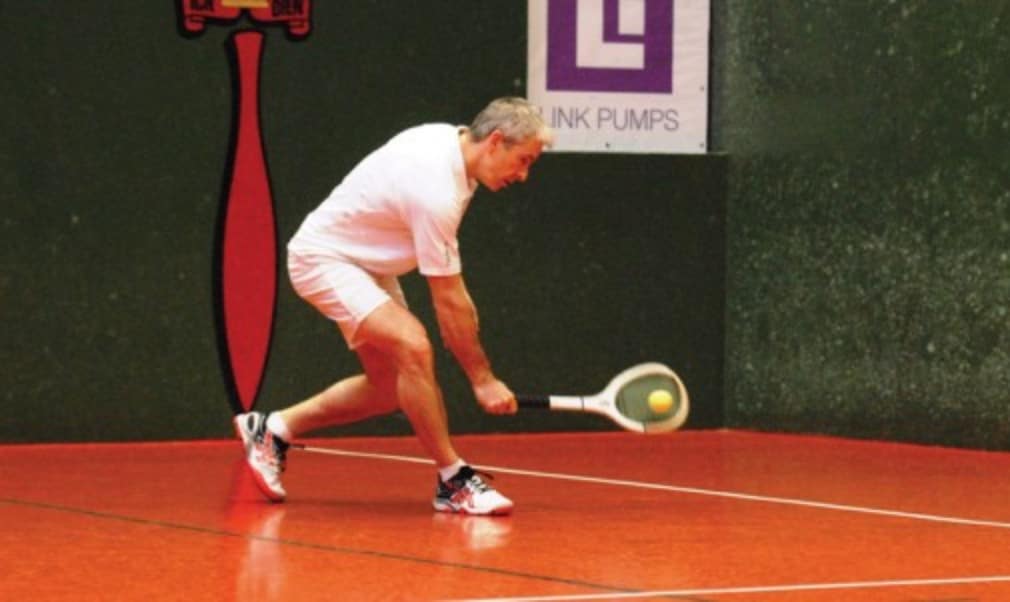
Learning from defeat
Originally published on 01/10/14
The question is often asked how many Grand Slams might Andy Murray have won if he wasn’t playing in the same era as Roger Federer, Novak Djokovic and Rafael Nadal – the three men who have dominated men’s tennis for the past decade. Without the trio, would Murray now have a healthy haul of major titles under his belt? Or, in fact, would the 27-year-old not have hit the same heights without the intense competition provided by his rivals? (A similar question could of course be asked of Federer, Nadal and Djokovic – would they have achieved all they have without each other?)
Real tennis world champion Rob Fahey, widely regarded as the greatest player to ever play the sport, has experienced both sides of the coin during his remarkable career and believes competition is crucial to development.
“I had a little period where I was winning tournaments pretty comfortably and it was tough to stay motivated,” he said. “I didn’t always enter tournaments because I almost got a bit bored. At the end of the day winning is great but it’s the competition that is more fun.
“It definitely made me improve having better competition. An American guy Tim Chisholm had a stage of about 18 months where he was pretty consistently beating me, just because he was better than I was, but having somebody get past you does drive you to improve and by the end of that period I had improved quite a lot and I was beating him again. You really don’t know how good you have to be until somebody is beating you.”
Fortunately for Fahey, 46, he has not experienced too many losses in his stellar career. Last year was the first year since 1992 when he did not win an Open, a run that included three Grand Slams and a total of 42 titles at the US Open, Australian Open, French Open and British Open. Most impressively, though, has been his unbeaten streak at the World Championships.
In 2008 he became the first ever player to win eight successive World Championships and this year he successfully defended his title for the 11th time, an incredible run stretching back to 1994. But just as important as the many wins for the Australian have been the occasional losses, and the timing of them.
“It definitely helps to lose now and again to get your focus back, you need that kick in the pants every now and again as a reminder that you have to get on with it,” he explains. “But you have to time your losses right, you have to make sure they are not at the World Championships or one of the bigger Opens.
“Of course it’s sport, so somebody can always beat you. Losing is always a possibility but people used to think it was a freak result when I lost and I would be like ‘not really, there is two of us out there and only one of us can win’. That attitude can be a bit frustrating but the losses are good.”
Crucially for Fahey, at a time when he looks to be in the twilight of his career, he says he is not afraid of losing and does not lack the motivation to continue playing.
“It can be tough to bounce back, especially now I am in my 40s, it’s like what do I do from here? You need that loss to push you to the next level, if you don’t have that motivation then it is probably time to retire,” he said. “I enjoy the competition, I enjoy the fact that I am pushing boundaries on a sport and age front and I am enjoying seeing what a 46-year-old body can do. I am going to take it as far as I can.
“When you are younger you are looking ahead thinking I have a long career here and I don’t want to be losing all the time, whereas now I am glad I am out there and enjoying every match I play. I am still out there trying to win but if you don’t win then it’s not the end of the world, nobody looks at me anymore like ‘I can’t believe you lost’, it’s still amazing you are out there.”
This article originally appeared in tennishead Volume 5 Issue 4. Subscribe to the magazine today or download tennishead on iTunes.


